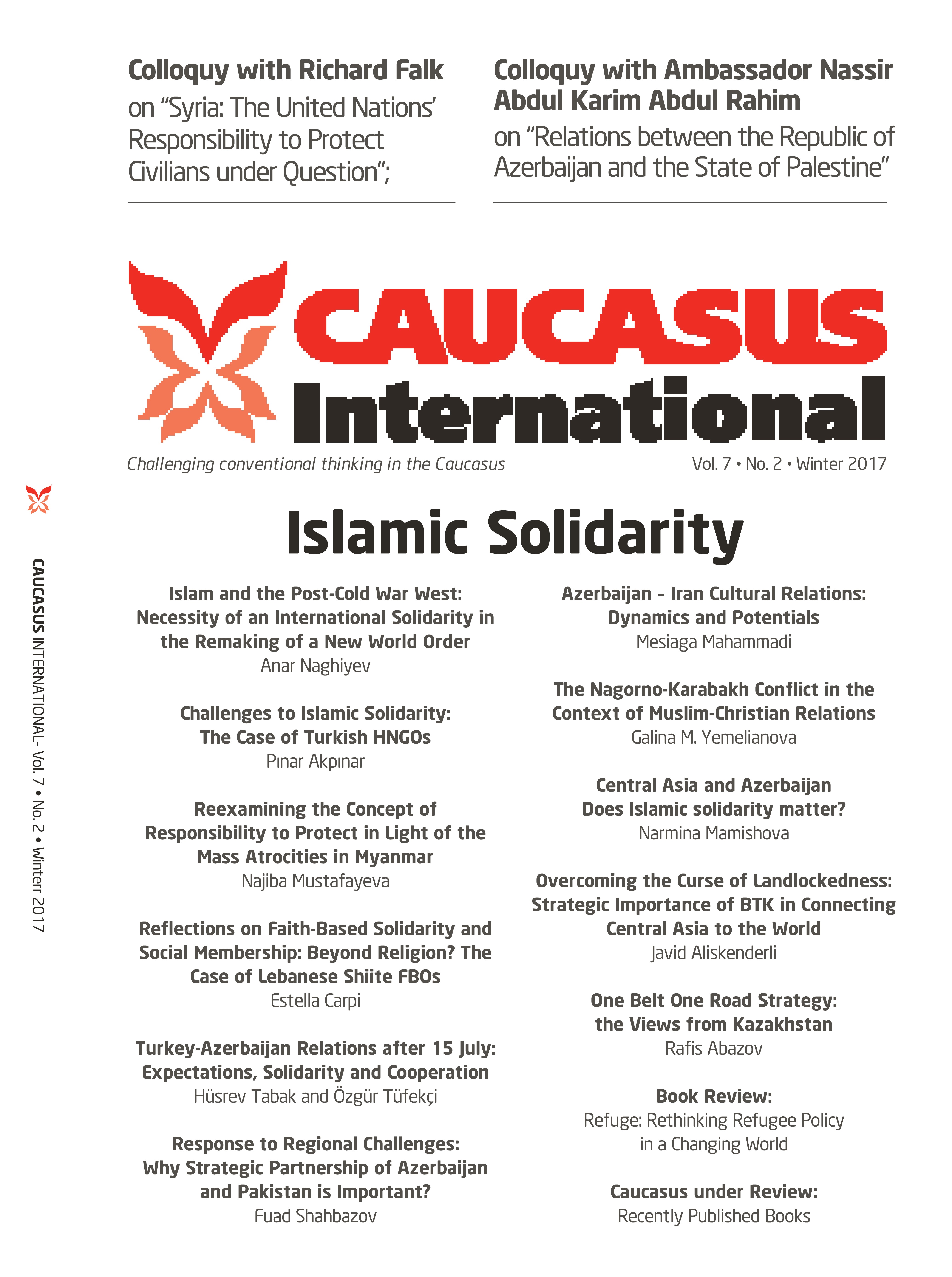Islam and the post-Cold War West: Necessity of an international solidarity in the remaking of a new world order
One of the objectives of Islamic studies is to research the influence and role of Islam in global politics. Measuring the extent of Islamic influence in foreign policy implementation is as important as identifying religious identities and how those identities are manifested; for instance in acts of terrorism. Islam has been a culture for millions of people for centuries, and Koran does not promote violence or aggressiveness. Similar to other religions, it is unique in essence and inclusive in character. Thus Islam should not be associated with terror, anger, or hatred. Nor should Islamophobia be allowed to become mainstream, a frequent, at times common, phenomenon in the West. The global fight against terrorism should uphold the safety of ordinary Muslims; accordingly, Islamophobia should be prioritized as a global threat. In light of these concerns, this article critically examines the way Islam is dealt with in international politics in the post-Cold War era.
Latest news
- 03/17/2020 Call for Submission: “Non-Alignment Movement and Its Perspective in International Affairs”. Deadline: 1 July 2020 2623 views
Popular articles
- 02/24/2020 The Role of Irredentism in Russia’s Foreign Policy 2535 views
- 02/24/2020 Construction of sub-national identity vis-à-vis parent state: Gagauz case in Moldova 2216 views
- 02/24/2020 The Conflict in Ukraine - The Geopolitics of Separatism and Divergent Identities (Commentary) 2071 views
- 02/24/2020 The Role of the Soviet Past in Contemporary Georgia 2044 views





